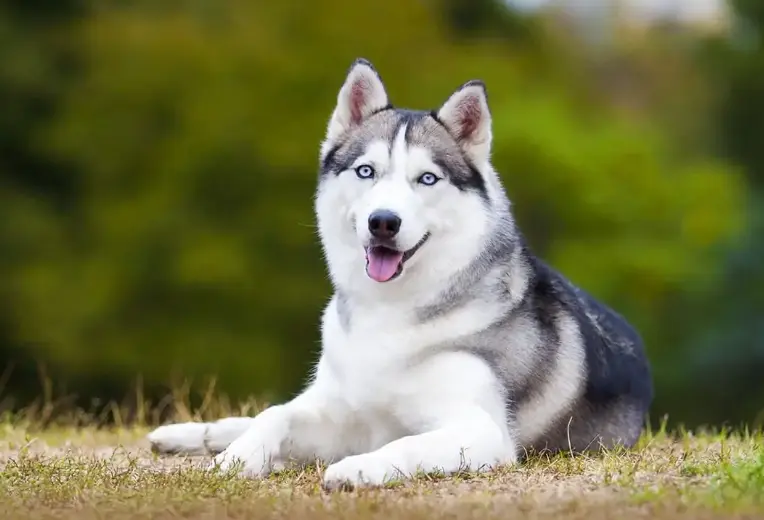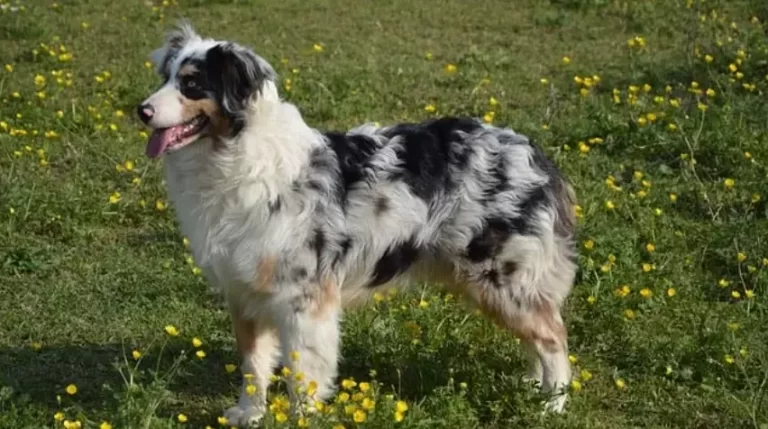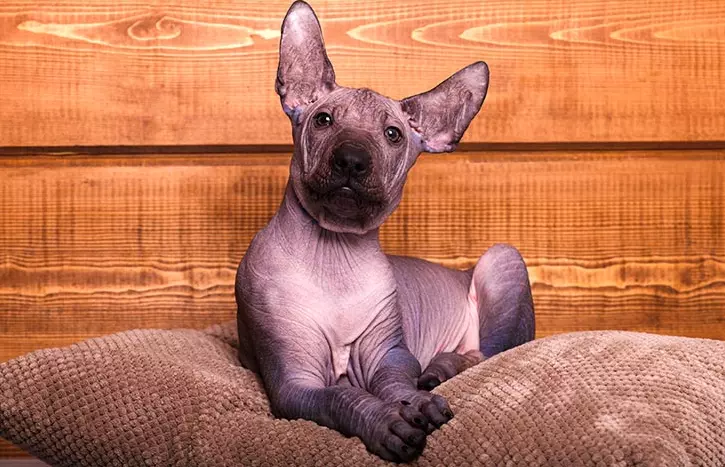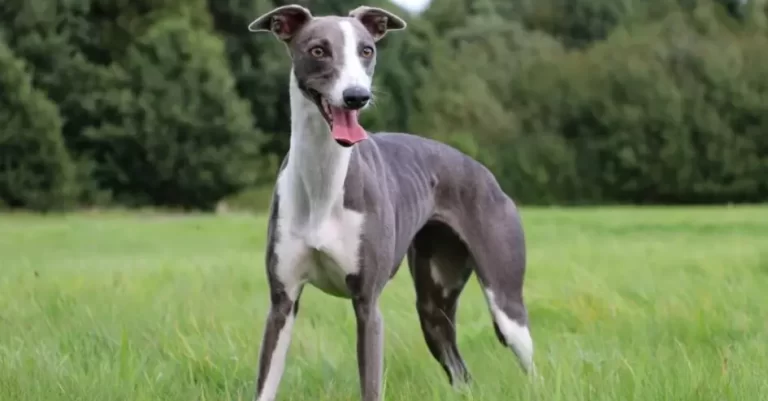Are Huskies Bad For Allergies? All in one
Table of Contents
Are Huskies bad for allergies? This question is especially important for people that are suffering from allergies, and the answer is that Huskies are not good for people who are suffering from allergies.
This is because huskies tend to be very hairy and thus produce a lot of dander that causes allergies.
So it is generally suggested to avoid huskies if you have allergies. However, if you have one, you must maintain it properly to prevent aggravating your situation.
This article will thoroughly discuss the advantages and drawbacks of having a husky and what you should know before making a purchase. So, let’s start reading;
What are the causes of allergies?
There are several reasons why people develop allergies. For example, people who suffer from hay fever do so due to allergies caused by pollen. Pollen is small particles that fly in the air and get stuck to human hairs.
These particles then irritate and eventually lead to allergies. People with allergies are more prone to sneezing and coughing, which results in excessive mucus, which can then turn into phlegm. This mucus eventually gets deposited on the skin of people with allergies and thus creates rashes.
The same goes for dogs. Dogs can also cause allergies in humans. This is because they secrete oils, saliva, and hair that can get stuck to human skin. Allergies are sometimes referred to as hypersensitivity reactions.
What are the signs and symptoms of allergies?
The body starts producing antibodies that fight against these allergic reactions when allergies occur. These antibodies usually end up causing inflammation and swelling. In severe allergies, there can be even more than one symptom.
For example, you might find that you have a runny nose or watery eyes while at the same time having itchy red skin. In severe circumstances, allergies might potentially trigger asthma.
What dog breeds are the worst for allergies?
Some breeds are considered to be more susceptible to allergy sufferers than others. Breeds like Labrador Retriever, golden retriever, German Shepherd Dog, Dalmatian, Airedale Terrier, Pekingese, Siberian Husky, and Doberman Pinschers are very prone to allergies.
Most dogs allergic to food tend to show a decrease in appetite or a behavior change when exposed to the allergen. They also have a problem with their nose, eyes, skin, and ears.
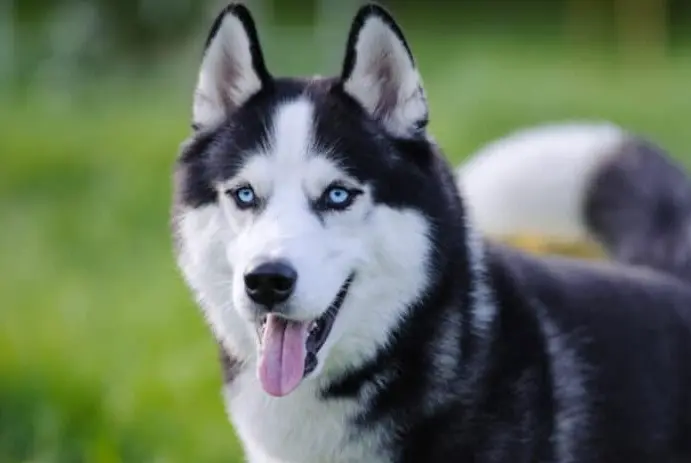
Are Huskies bad for allergies?
Yes, huskies are bad for people who have allergies. People who are sensitive to animal dander shouldn’t get huskies. A husky breed is one of the most likely to have allergy symptoms. It has been discovered that when dogs are exposed to allergens such as pollen, dander, and fur, they can cause a person to get a severe allergic reaction.
It would help if you avoided contact with dog hair, dander, saliva, and feces to reduce the risk of an allergy.
If you are sensitive to canine dander, saliva, hair, or excrement, you might want to consider a dressing that will keep your skin clean. You could also consider using a nasal spray to keep your nose free from the dog’s hair and dust. You can also prevent the occurrence of dog allergies by choosing breeds that are less likely to be sensitive to allergies.
What Makes a Dog Hypoallergenic?
Hypoallergenic dog breeds are one of the simplest methods to reduce the risk of allergies in allergy sufferers because Hypoallergenic dogs have fewer risk of causing an allergy.
They’ve been developed over many ancestors to have the fewest allergen-causing proteins in their coats. As a result, you won’t need to be concerned that your allergies may worsen after getting the dog.
Can an Allergy Sufferer Adopt a Husky?
Before adopting a husky, there are a few things to think about. First, look into the history of the breed. You want to know what has happened to these dogs in the past, especially regarding allergies.
Additionally, you want to confirm that the dog you’re thinking about adopting is healthy and doesn’t have any conditions that might lead to future allergy flare-ups.
If you are planning to get more than one dog from the same litter, it would be a good idea to get them from different litters so that there is no chance of getting two siblings that could be allergic to each other.
It would assist if you also considered how to take care of the dog. You will want to be sure that you have plenty of space for the dog. A large dog breed needs more space to run around and play.
If you have kids, make sure you have the right dog for your number of kids. You should make sure that you have adequate time to take care of the dog.
How to avoid dog allergies?
There are many approaches to prevent allergic reactions caused by Huskies :
- Keep your dog indoors.
- Try to avoid touching your dog when you are around him.
- Try to stay away from dog hair.
- Clean your hands after you are done with the bathroom.
- Clean your shoes before you wear them.
- Get a pet that doesn’t have long fur.
- Wash your bedding regularly.
- Don’t allow your dog to lick your face or use his tongue to wipe your ears.
If you don’t, you may develop a problem called canine dermatitis. Please find out how to treat it by contacting your veterinarian. If you don’t talk to your doctor, they may not be able to diagnose the problem correctly.
Advantages of owning a husky
Owning a husky is extremely rewarding as you see them in their natural environment. They are intelligent and loyal, and you can also train them like other dogs. However, before you buy one, you must consider several things before making the final decision:
It would be best if you first considered their health. You should make sure that husky puppies are born and reared in a stable environment if you intend to purchase one. They must be vaccinated and micro-chipped and be free from worms.
You must check its teeth if you plan to buy a husky older than two years. This is because an older husky will have old age ailments such as arthritis and joint problems.
You can also use huskies for a guard dogs. They are fearless and will defend you from any danger.
It would help if you kept in mind that a husky can use to hunt. Huskies are great for hunting due to their size. They are also smart and intelligent enough to know when to catch their prey. The training for them is similar to that for other breeds of dogs. You can take your husky to obedience classes. They are also good with children.
They will also be much healthier. Huskies have fewer health issues and are also friendly towards people. In addition, purebred huskies tend to be more intelligent. They also have a lot of energy and endurance.
What are the drawbacks of owning a husky dog breed?
The negative factors of owning a husky dog are mostly related to the size of the dog. They have very long legs, which makes them appear bigger. They are very heavy and can cause injuries to their owners. They are not friendly towards strangers.
There is a lot of work involved in caring for a husky dog. You will need to train him on how to walk on a leash. It would help if you did it properly. They can easily jump over barriers. In addition, they can jump fences at times. They may also be hostile to canines of different breeds. Therefore, understanding how to tackle them is crucial.
They need a lot of consideration and care. Because they sweat so much, you must spend a lot of time grooming them. Their coats may become dry and itchy. They may have difficulty shedding the undercoat because it is very thick. Some huskies have difficulty breathing.
Frequently Asked Questions
Do Huskies release a lot of allergens?
Yes, dogs release many allergens through their breath, skin flakes, saliva, and urine. These allergens enter your home and can cause allergies in people with respiratory conditions or chronic skin diseases.
Are Siberian huskies hypoallergenic?
Siberian Huskies are not hypoallergenic. These dogs are quite friendly, and hence, their fur is considered to be relatively clean. However, it is still best to check with your vet to ensure your children aren’t allergic to their fur. They also shed quite a lot, so you should try to keep them under control to reduce the amount of fur that falls outside the house.
Can you be allergic to a Siberian Husky?
Siberian Huskies can develop allergies to flea, tick, and mite allergens, and you should talk to your vet to find out how to manage such conditions. For instance, if you see ticks on your dog, you can remove them yourself, or if you have already noticed signs of an allergy, you should treat the dog with antihistamines.
Does Husky hair cause asthma?
Husky hair is soft furry hair. It’s very common in dogs, especially the ones that have shed fur. So yes, this hair does cause asthma in people who are allergic to dogs, but only if the dog was wearing a harness, leash, or collar. The allergens contained within the fur itself don’t pose any harm to you.
Are huskies part wolf?
Huskies are wolves; hence, they are members of the same species. But unlike dogs, huskies originated from Siberia. They were brought under human control and tamed thousands of years ago. They became popular companion animals when the human population was small and needed to protect and herd the people. Today, huskies are still used for their excellent herding abilities.
Why do Huskies scream?
Huskies are domesticated dogs with high vocalization capabilities, making them capable of screaming like other dogs. They can sometimes also bark, whine, growl, and yelp, though they are generally not as loud as other animals in that range.
Can Husky be left alone?
Generally, huskies are known to be extremely friendly, and most of them love human attention. If you decide to let your husky stay alone outside, you should consider his environment, size, and age. Ensure he has enough food and water and doesn’t get into trouble with children or other animals.
How often should you bathe a husky?
Every seven days is a good enough period for bathing a husky, and you shouldn’t go beyond this. The biggest feature is to give them a weekly bath in the tub using a pail of warm water and soap. You should ensure they have fresh water, a clean blanket, and food to eat.
At what age does a Husky calm down?
A Husky will get calmer with time. Around three months old, he ought to have gotten used to his new environment. After this, he will start adapting to his new family. The time will vary according to the person, but generally, it takes about two months to adjust.
What foods are Huskies allergic to?
Yes, dogs are allergic to many common foods and products. Certain foods can cause an allergic reaction in a dog, like peanuts and walnuts, wheat, corn, and soy.
Conclusion
Allergies are one of the most common diseases, affecting around 40% of Americans. They can cause you to cough, sneeze, sniffle and have trouble breathing.
Huskies are not the only dogs to carry this disease. Other dogs that are predisposed to allergies include dachshunds, Shih-Tzus, and bulldogs.
However, there are ways to avoid these allergens in your life and home. This includes keeping your dog away from your face while sleeping and wearing protective masks during the pollen season.
It’s also very important that we consider our pets’ needs when it comes to allergies. As with humans, the best way to avoid these problems is to clean up pet hair and dander and provide a clean environment.
If you have more questions about the husky dog breed, please leave us comments below;
- 1xbet официального Сайт Казино Игровыми Автоматами 1хбет - April 17, 2024
- Бездепозитные Бонусы За Регистрацию и Онлайн Казино 202 - April 9, 2024
- Yeni Deneme Bonusu Veren On Line Casino Siteler - January 31, 2024

